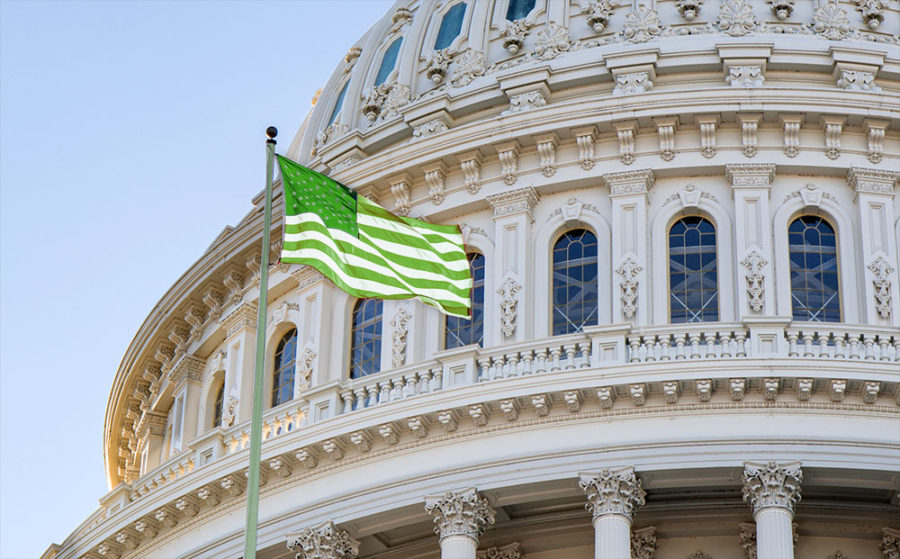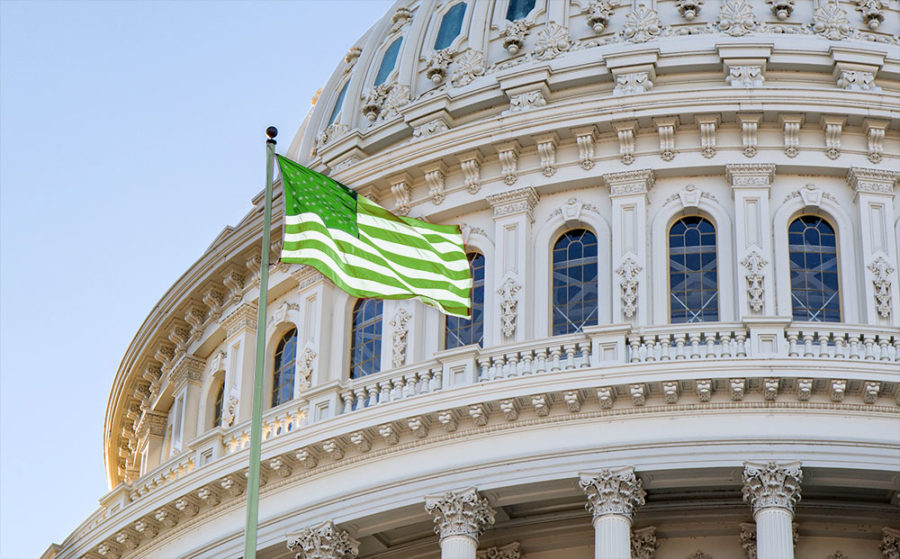
May 9, 2019
Today, Senate Democratic Leader Chuck Schumer and House Democratic Caucus Chairman Hakeem Jeffries announced their intentions to introduce legislation known as the Marijuana Freedom and Opportunity Act, to remove marijuana from the Controlled Substances Act (CSA), thus ending the nearly century-long federal policy of criminalization and prohibition.
Send a message to your elected officials in support of this legislation now.
NORML Political Director Justin Strekal said,
“The Marijuana Freedom and Opportunity Act is comprehensive legislation that would end our nation’s failed 80-year prohibition of marijuana and allow states to implement reforms free from the threat of federal interference.”
“This bill is part of the continued shift of Democratic Party leadership. At a time when 68 percent of Americans support marijuana legalization, including outright majorities of Democrats (77 percent), Independents (62 percent), and Republicans (57 percent), it is time for ending federal prohibition to become a truly bipartisan issue in the eyes of voters.”
“Legislative relief must come sooner rather than later. Over 650,000 Americans, disproportionately black, brown, young, and poor, are arrested for violating marijuana laws annually. Those without the means to defend themselves from the state bear the greatest burden and lifelong consequences of this ongoing failed federal policy. It is time for Congressional leaders to take a stand to right these past wrongs.”
“The importance of this bill’s emphasis on facilitating the expunging of individual criminal records for marijuana possession cannot be overstated. Millions of Americans have suffered from the lifelong collateral consequences of criminal prohibition, making it harder for them to find a job, obtain housing, and access higher education.”
“As states dial back their war on marijuana consumers, it is important that those who were impacted by this oppressive prohibition are able to see previous harms remedied, and be provided the opportunity to participate in the benefits that come along with legalization and regulation.”
At the time of introduction, the bill sponsors said:
“It’s time to decriminalize marijuana, and this bill is a critical first step,” said Leader Charles E. Schumer (D-NY). “The Marijuana Freedom and Opportunity Act would give states the right to make their own choices when it comes to regulation; better equip all Americans, particularly communities disproportionately impacted by marijuana’s criminalization, to participate in the growing marijuana economy; and, by incentivizing sealing and expungement programs, provide Americans with low-level marijuana convictions the opportunity to move forward.”
“For far too long, the impact of America’s repressive, archaic marijuana laws has been felt most heavily by people of color,” said Representative Hakeem Jeffries (NY-08). “This critical effort works to correct that injustice by providing $100 million toward expungement programs and creating an investment fund for people of color and female entrepreneurs who wish to enter the lucrative legal cannabis industry.”
According to the most recent FBI Uniform Crime Report, police made 659,700 arrests for marijuana-related violations in 2017. That total is more than 21 percent higher than the total number of persons arrests for the commission of violent crimes (518,617) in 2017. Of those arrested for marijuana crimes, just under 91 percent (599,000) were arrested for marijuana possession offenses, a slight increase over the previous year’s annual totals. Total marijuana arrests in 2017 increased for the second straight year, after having fallen for nearly a decade.
Thirty-three states, Washington, D.C. and the U.S. territories of Guam and Puerto Rico have enacted legislation specific to the physician-authorized use of cannabis. Moreover, an estimated 73 million Americans now reside in the ten states where anyone over the age of 21 may possess cannabis legally. An additional thirteen states have passed laws specific to the possession of cannabidiol (CBD) oil for therapeutic purposes.
Sixty-eight percent of registered voters “support the legalization of marijuana,” according to 2018 national polling data compiled by the Center for American Progress. The percentage is the highest level of support for legalization ever reported in a nationwide, scientific poll.
Majorities of Democrats (77 percent), Independents (62 percent), and Republicans (57 percent) back legalization. The results of a 2017 nationwide Gallup poll similarly found majority support among all three groups.
To date, these statewide regulatory programs are operating largely as voters and politicians intended. The enactment of these policies have not negatively impacted workplace safety, crime rates, traffic safety, or youth use patterns. They have stimulated economic development and created hundreds of millions of dollars in new tax revenue.
Specifically, a 2019 report estimates that over 211,000 Americans are now working full-time in the cannabis industry. Tax revenues from states like Colorado, Oregon, and Washington now exceed initial projections. Further, numerous studies have identified an association between cannabis access and lower rates of opioid use, abuse, hospitalizations, and mortality.











